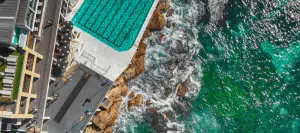Table of Contents
ToggleWhat is Termite Inspections?
Termite inspections are a crucial part of property maintenance and real estate transactions, particularly in regions like the Dominican Republic where termites can pose significant threats to wooden structures. These inspections involve a thorough examination of a property to identify signs of termite activity, damage, and potential infestations. Professional inspectors utilize specialized tools and techniques to assess both visible and hidden areas where termites may reside, ensuring a comprehensive evaluation of the property’s condition.
The Importance of Termite Inspections
Understanding what termite inspections entail is essential for homeowners and prospective buyers alike. Termites can cause extensive damage to a property, often going unnoticed until significant structural issues arise. By conducting regular termite inspections, property owners can detect infestations early, allowing for timely intervention and repairs. This proactive approach not only preserves the integrity of the home but also protects its market value, making it a wise investment for anyone involved in real estate in the Dominican Republic.
How Termite Inspections Are Conducted
During a termite inspection, a qualified pest control professional will typically start by examining the exterior of the property, looking for signs of termite activity such as mud tubes, discarded wings, and damaged wood. They will then move indoors, inspecting areas like basements, attics, and crawl spaces, where termites are likely to thrive. The inspector may also use moisture meters and thermal imaging cameras to detect hidden infestations, ensuring that no area is overlooked during the assessment.
Signs of Termite Infestation
Recognizing the signs of termite infestation is vital for homeowners. Common indicators include hollow-sounding wood, frass (termite droppings), and visible damage to wooden structures. Additionally, homeowners may notice mud tubes along walls or foundations, which serve as pathways for termites. Understanding these signs can help property owners take immediate action, potentially saving them from costly repairs and extensive damage.
Types of Termite Inspections
There are generally two types of termite inspections: a full inspection and a limited inspection. A full inspection covers all accessible areas of the property, providing a comprehensive overview of potential termite issues. In contrast, a limited inspection may focus on specific areas of concern, often at the request of the homeowner or real estate agent. Knowing the difference between these inspections can help property owners choose the right service based on their needs.
Frequency of Termite Inspections
It is recommended that homeowners schedule termite inspections at least once a year, especially in regions prone to termite activity. However, if a property has a history of infestations or is located in a high-risk area, more frequent inspections may be necessary. Regular inspections not only help in early detection but also provide peace of mind for homeowners, ensuring that their investment remains protected.
Cost of Termite Inspections
The cost of termite inspections can vary based on several factors, including the size of the property, the extent of the inspection, and the location. On average, homeowners can expect to pay between $75 and $150 for a standard inspection. While this may seem like an added expense, the potential savings from preventing termite damage far outweigh the cost of the inspection, making it a valuable investment for any property owner.
What Happens After a Termite Inspection?
After a termite inspection is completed, the inspector will provide a detailed report outlining their findings. If termites are detected, the report will typically include recommendations for treatment options, which may involve chemical treatments, baiting systems, or structural repairs. Homeowners should take these recommendations seriously and act promptly to address any issues, as delaying treatment can lead to more severe damage and higher repair costs.
Choosing a Termite Inspection Service
When selecting a termite inspection service, it is essential to choose a reputable company with experience in the field. Look for licensed and insured professionals who use the latest technology and methods for inspections. Reading reviews and asking for recommendations can also help ensure that you find a reliable service that meets your needs. A thorough inspection by a qualified expert can provide invaluable insights into the condition of your property and help you make informed decisions.



